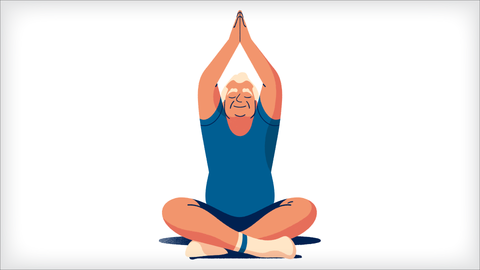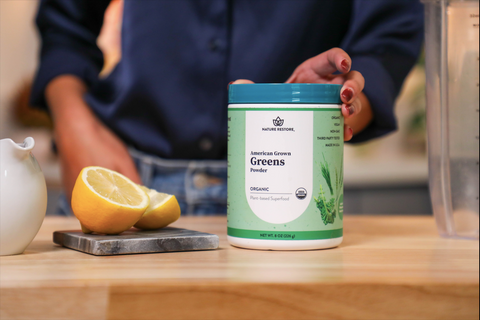
Have you ever wondered what makes you fall into a deep, peaceful sleep, or why a even after sleeping recommended number of hours, you're still groggy or sleepy? The answer lies in the intricate workings of your brain and a neurotransmitter called GABA.
Gamma-Aminobutyric Acid (GABA): GABA is a neurotransmitter, a chemical messenger in your brain, that plays a pivotal role in sleep regulation. It's the body's natural sedative, promoting relaxation and helping you wind down after a long day. In essence, GABA acts as the brain's "brake pedal," slowing down overactive neural activity, which is essential for achieving a state of restful slumber.
The GABA-Sleep Connection: Here's how GABA contributes to your sleep:
-
Reducing Anxiety: GABA helps alleviate anxiety by inhibiting excessive brain activity. It's like a natural zanny for your CNS. When you're less anxious, it's easier to transition into a peaceful sleep state.
-
Calming the Mind: GABA's calming effect can help quiet the mental chatter that keeps you awake at night. It's the key to achieving a sense of tranquility and peace, essential for falling asleep.
-
Inducing Deep Sleep: GABA promotes deep sleep (slow-wave sleep) and suppresses lighter stages of sleep. This deep sleep is crucial for physical and mental restoration.
-
Muscle Relaxation: GABA also helps relax muscles, which is especially important for preventing restless leg syndrome and muscle spasms that can disrupt your sleep.
Boosting GABA for Better Sleep: If you're looking to enhance your sleep quality by boosting your GABA levels, consider these lifestyle changes:
-
Physical Activity: Regular exercise can increase GABA levels, promoting better sleep. Aim for at least 30 minutes of moderate exercise most days.
-
Diet: Some foods, like tea, whole grains, nuts, and certain fruits, can naturally increase GABA levels. Incorporate them into your diet.
-
Stress Management: Reducing stress through techniques like mindfulness, meditation, and deep breathing can elevate GABA levels.
-
Supplements: In some cases, individuals may consider GABA supplements, but GABA supplements, the evidence is mixed. There's something about consuming GABA versus your body making it's own natural GABA. If you're looking for natural endosynthesis of GABA, consider checking out our SleepBoost!
In conclusion, GABA is a critical component in the orchestration of a good night's sleep. Understanding its role in promoting relaxation, reducing anxiety, and inducing deep, restorative sleep can help you make conscious choices to improve your sleep quality. Prioritizing a sleep-friendly lifestyle that supports healthy GABA levels can be a game-changer in your quest for a rejuvenating night's rest.






